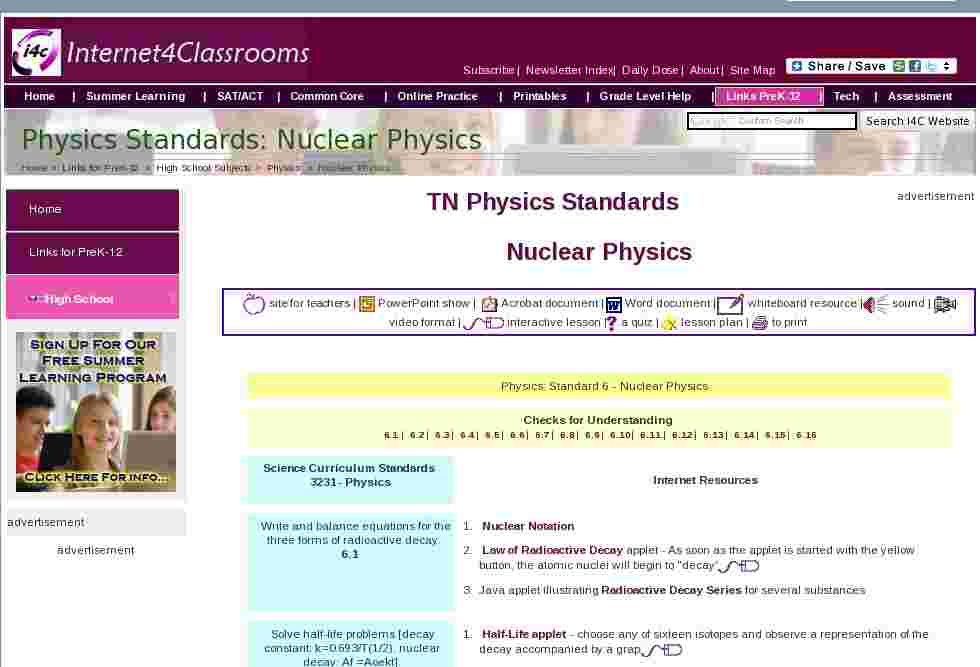TN Physics Standards
Nuclear Physics
site for teachers |
PowerPoint show |
Acrobat document |
Word document |
whiteboard resource |
sound |
video format |
interactive lesson |
a quiz |
lesson plan |
to print
Science Curriculum Standards
3231 - Physics
- Nuclear Notation
- Law of Radioactive Decay applet - As soon as the applet is started with the yellow button, the atomic nuclei will begin to "decay"
- Java applet illustrating Radioactive Decay Series for several substances
- Half-Life applet - choose any of sixteen isotopes and observe a representation of the decay accompanied by a graph
- Radioactive Half-Life - includes a link to an interactive Radioactive Decay Calculation
- Half-Life applet - choose any of sixteen isotopes and observe a representation of the decay accompanied by a graph
- Radioactive Half-Life - includes a link to an interactive Radioactive Decay Calculation
- Photoelectric Effect - a Java applet which simulates an experiment for the determination of the Planck constant and the work function
- Wave-Particle Duality and the Photoelectric Effect
- Quantum Properties of Light - including lasers and coherent light
- Photoelectric Effect - a Java applet which simulates an experiment for the determination of the Planck constant and the work function
- Wave-Particle Duality and the Photoelectric Effect
- Nuclear Particles including Data for a Scale Model of an Atom
- How can we see the structure of atom? This java applet allows a simulation of the same situation as in Rutherford's experiment. (Don't judge the physics of this Japanese physicist by his spelling)
- Use this java applet to play with colored balls (just like Quarks). Nori presents a variation on the same subject in this applet.

Search Internet4Classrooms
 Custom Search
Custom Search
- Site Map |
- About Us |
- Teacher Training |
- Make Internet4Classrooms.com your home page. |
- Copyright © 2000-2024 Internet4Classrooms, LLC All rights reserved.
Use of this Web site constitutes acceptance of our Terms of Service and Privacy Policy.
1739646619307474 US 1 desktop not tablet not iPad device-width